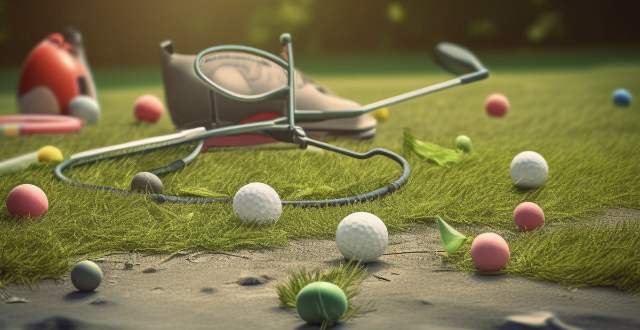Recovering from a sports injury varies based on the type and severity of the injury, individual factors such as age and overall health, and commitment to rehabilitation. Acute injuries occur suddenly, often due to a specific event or trauma, while overuse injuries develop over time from repetitive stress without adequate rest or recovery. Chronic injuries are ongoing conditions that may have started as acute or overuse injuries but have not healed properly. Recovery timelines vary depending on the injury's severity, with minor sprains and strains taking several days to a few weeks to heal with proper rest and care, moderate injuries requiring several weeks to months for recovery, often involving physical therapy, and severe injuries like major fractures or complete ligament tears taking months to over a year for full recovery, typically requiring surgery and extensive rehabilitation. Key factors affecting recovery include age, overall health, commitment to rehabilitation, rest, and professional care. Tips for supporting recovery include following professional advice, maintaining a healthy lifestyle, staying positive, and gradually returning to activity. Patience, persistence, and a proactive approach to rehabilitation are key to achieving the best possible outcome.

How Long Does It Take to Recover from a Sports Injury?
Recovering from a sports injury is a process that varies depending on the type and severity of the injury, as well as individual factors such as age, overall health, and commitment to rehabilitation. Here are some key points to consider:
Types of Sports Injuries
1. Acute Injuries: These occur suddenly, often due to a specific event or trauma, such as a fall or collision. Examples include fractures, sprains, and strains.
2. Overuse Injuries: These develop over time from repetitive stress without adequate rest or recovery. Examples include tendinitis and stress fractures.
3. Chronic Injuries: These are ongoing conditions that may have started as acute or overuse injuries but have not healed properly.
Recovery Timelines
Acute Injuries
- Minor Sprains and Strains: Usually take several days to a few weeks to heal with proper rest and care.
- Moderate Injuries (such as significant sprains or pulls): May require several weeks to months for recovery, often involving physical therapy.
- Severe Injuries (like major fractures or complete ligament tears): Can take months to over a year for full recovery, typically requiring surgery and extensive rehabilitation.
Overuse Injuries
- Minor Overuse Issues: Often resolve within days to weeks with rest and treatment.
- Moderate to Severe Overuse Injuries: Can take weeks to months for recovery, requiring modified activity and possibly physical therapy.
Chronic Injuries
- Management: These injuries may not fully heal and instead require ongoing management to minimize symptoms and prevent further damage.
Key Factors Affecting Recovery
- Age: Younger individuals generally recover more quickly than older ones.
- Overall Health: Good nutrition and cardiovascular health can support healing.
- Commitment to Rehabilitation: Consistent participation in recommended exercises and therapies is crucial.
- Rest: Adequate rest is essential for healing.
- Professional Care: Early intervention by medical professionals can significantly improve outcomes.
Tips for Supporting Recovery
1. Follow Professional Advice: Heed the recommendations of your doctor or physical therapist.
2. Maintain a Healthy Lifestyle: Balanced diet and adequate sleep support healing.
3. Stay Positive: Mental attitude can influence recovery progress.
4. Gradual Return to Activity: Avoid rushing back into sports; build up gradually to reduce the risk of re-injury.
In conclusion, the time it takes to recover from a sports injury is highly individualized. While minor injuries might only take days or weeks, more severe injuries could require months or even years of dedicated effort and professional care to heal completely. Patience, persistence, and a proactive approach to rehabilitation are key to achieving the best possible outcome.